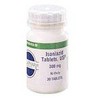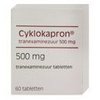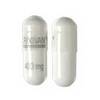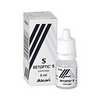INDICATIONS
Seroquel is used for treating schizophrenia or bipolar disorder. Seroquel is an atypical antipsychotic. It affects certain receptors in the brain. This may help to improve symptoms associated with schizophrenia and bipolar disorder.
INSTRUCTIONS
Use Seroquel as directed by your doctor.
- Take Seroquel by mouth with or without food.
- Continue to take Seroquel even if you feel well. Do not miss any dose.
- Do not suddenly stop taking Seroquel without first talking with your doctor. You may have an increased risk of side effects. If you need to stop Seroquel or add a new medicine, your doctor will gradually lower your dose.
- If you miss a dose of Seroquel, take it as soon as possible. If it is almost time for your next dose, skip the missed dose and go back to your regular dosing schedule. Do not take 2 doses at once.
Ask your health care provider any questions you may have about how to use Seroquel.
STORAGE
Store Seroquel at 77 degrees F (25 degrees C). Brief storage at temperatures between 59 and 86 degrees F (15 and 30 degrees C) is permitted. Store away from heat, moisture, and light. Do not store in the bathroom. Keep Seroquel out of the reach of children and away from pets.
MORE INFO: Active Ingredient: Quetiapine fumarate.







